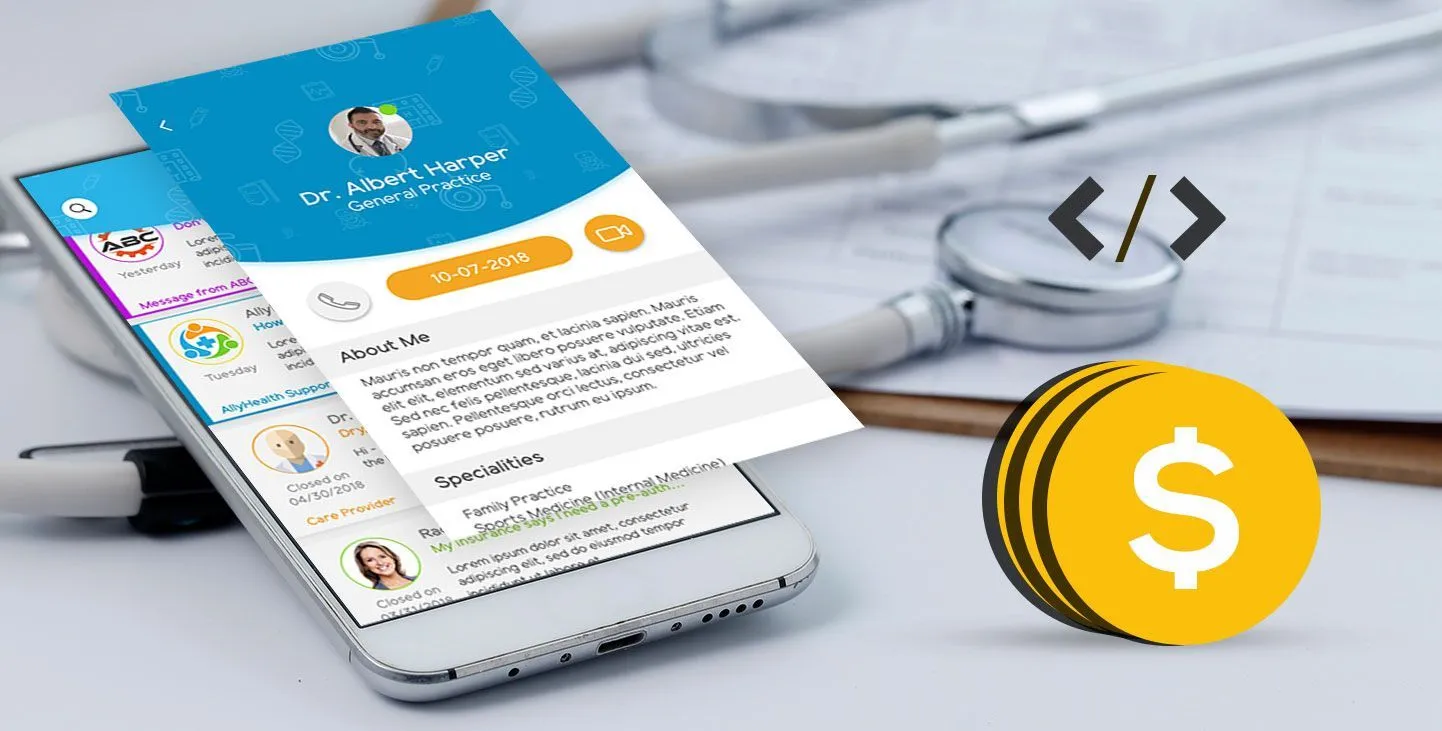
Smartphone users have begun to rely on multiple health monitoring applications in recent years, particularly in light of the increase in chronic diseases and lack of knowledge about basic health parameters. These health and wellness applications aid you in nearly every facet of your wellbeing. You can also monitor your daily steps, calculate the calories of everything you’ve consumed, and set reminders to drink water when necessary.
However, with so many applications, you may be concerned about data privacy and the repercussions of conflicting information between apps. The majority of these applications also encourage the purchase of additional fitness trackers and include various paid subscriptions.
Before installing or subscribing to a free or paid health monitoring application, let’s examine the primary advantages and disadvantages of these programs.
Apps for health monitoring’s benefits
1) Ease of use
Currently, the majority of people own a smartphone, and with the help of the device’s built-in sensors, it is simple to calculate all the essential health parameters. The majority of these health monitoring applications are available for free installation, and you can even set reminders for specific exercises or tasks. Thanks to your smartphone, you have access to all of these benefits without having to stress about anything.
2) Calorie counting
Stay cool this summer with these top 5 refreshing fruits! 🍉🍍🥭🍌
Which summer fruits do you consume? Comment below👇🏻#ChillLikeAPro #Summer #Fruits #Nutrition #Health #SummerFruits pic.twitter.com/xhkBmbrI3E
— Healthify (@healthifyme) April 3, 2023
Stay cool this summer with these top 5 refreshing fruits! 🍉🍍🥭🍌Which summer fruits do you consume? Comment below👇🏻#ChillLikeAPro #Summer #Fruits #Nutrition #Health #SummerFruits https://t.co/xhkBmbrI3E
In order to keep track of all the food items you have ingested or plan to consume, calorie counters are included in the majority of health apps today. If you are on a low-carb diet, this feature helps you monitor your calorie intake and maintain a calorie deficit. Overall, these health monitoring apps aid in maintaining a healthy lifestyle by keeping account of all calories burned or consumed.
3) Educating you about all the health benefits
The majority of health monitoring applications can educate and inform their users, as well as identify doctor’s prescriptions and suggest fundamental medications. You can also access medical publications and other information in order to remain informed and educated about health care.
In addition, many of us would adore to exercise at home but do not know how to perform basic home workouts. Popular health applications include a variety of workout routines and methods for maintaining body shape. These exercises are straightforward and can be performed by beginners.
4) Keeping track of your body vitals

With the increasing popularity of cutting-edge digital devices such as smartwatches, fitness monitors, and healthy lifestyle apps, it is now simpler than ever to maintain a healthy weight, adhere to a strict diet, and get a better night’s sleep. These health monitoring applications allow you to track your sleep, body mass, caloric intake, heart rate, and blood pressure, as well as notify female users of their menstrual cycles.
This information will increase your likelihood of attaining a healthy lifestyle by assisting you in setting safe and effective exercise goals. You can also share your stats with peers or personal trainers to receive additional guidance and support.
Apps for health monitoring have drawbacks.
1) Accuracy of the information provided
Suppose you wish to track natively health vitals using any third-party or proprietary fitness tracker. Numerous health monitoring applications calculate various body vitals using a variety of methods. Some applications, for instance, use a sensor beneath the camera to predict your pulse rate and stress levels.
Many of these applications also claim to be able to measure blood pressure using a smartphone’s display, camera, or flashlight. Unfortunately, the majority of the provided information is unverified and unreliable, and when compared to actual medical equipment, these are in fact far off the mark. Therefore, the accuracy of these apps cannot be relied upon for such essential body readings.
2) Data privacy
Recently, a number of studies and government authorizations have raised concerns regarding health monitoring and data privacy issues in such applications. The majority of these applications collect personal information, including birth dates, email addresses, and health information.
Few of them have privacy policies that typically describe the purposes of data collection, distribution, and sale to third parties. In addition, studies have revealed that premium applications do not rely on advertising for revenue, so they pose a lower risk to users’ privacy.
3) Subscription cost

As stated previously, the majority of apps are free to acquire and operate without an installation fee. However, once you access all of the premium features of highly rated and trustworthy health apps, the developers charge a subscription fee to continue using the app.
If the app has a large user base, it also relies on video or image advertisements between different features, which can be quite annoying. Therefore, budget-conscious users may perceive this as a major disadvantage, as they must always maintain their fixed expenditures.
4) Reliability of data

Because there are no industry-wide standards in place, consumers are unable to assess the accuracy of the data provided by health monitoring apps and other mobile technology apps. Consequently, the majority of physicians advise against relying solely on these applications for health-related information. Therefore, you should not completely rely on the guide or coaching manuals within these applications.
Utilizing mobile health applications with caution and common sense is advised. While you should ideally be informed of all the app’s features and the intended health benefits, you should read any available privacy policies to understand how the software manages your data.




Leave a Reply ▼